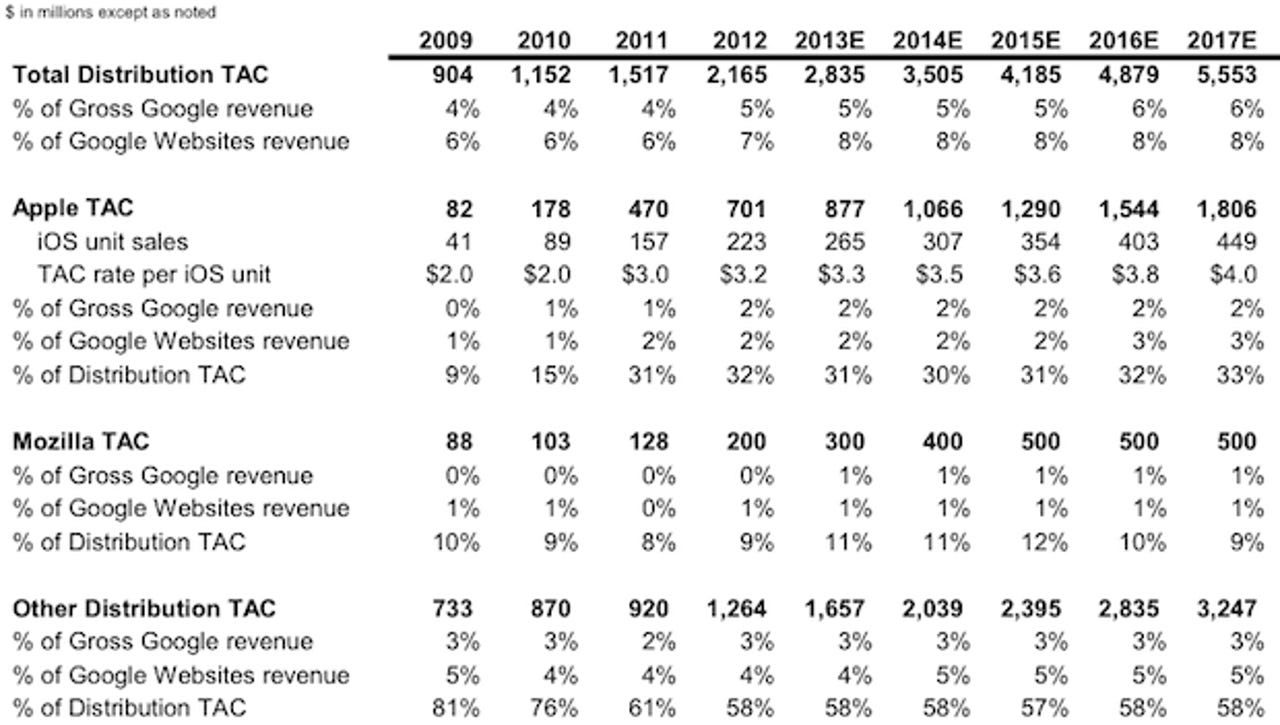Google spends $1B a year on iOS search default: analyst

Google could be paying Apple as much as $1 billion each year to keep its search engine as the default option on iPhones and iPads, according to a Morgan Stanley analyst.
Analyst Scott Devitt says, "the next Google is Google," in the note. The short version is: YouTube is a cash cow in waiting by being able to make $20 billion by 2020 in worldwide TV spending; and search should expand to other markets as the U.S. and U.K. search share remains flatten out.
Taking a closer look at the firm's mobile business, Devitt estimated that Google may spend upwards of $1 billion on simply having its search engine as the default option on Apple's iOS devices. This figure is set to rise over the years, he says.
Google's traffic acquisition costs (TAC) on iOS-powered devices, such as the iPhone and iPad, will incrementally increase year over year, but will remain around the 5-6 percent mark. This falls just short of $1 billion this year, and will slowly increase over time by a couple of hundred million year over year.

It's no surprise that Google pays others to include search on its products and services. Google pays around $300 million per year to include its search on the home screen on Mozilla's Firefox browser. It's a good deal: spend a little, generate a bit more in ad revenue.
Android already controls the mobile market, and Google controls the search market in most regions, notably the U.S., the U.K. and mainland Western Europe. Android already hosts Google search, so spending a little—at least by Google's standards—in plugging its search engine in the second-place platform in the mobile market makes sense.
And, if it gives Google an in-road to other places, notably Japan, Asia and Eastern Europe, Google could take the markets it has yet to show any substantial impact in.